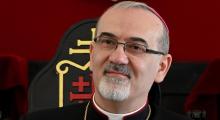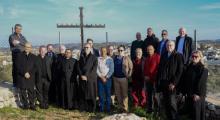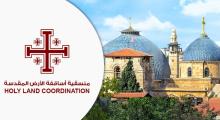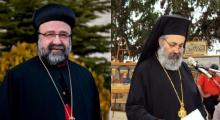Issued by the Catholic Center for Studies and Media - Jordan. Editor-in-chief Fr. Rif'at Bader - موقع أبونا abouna.org
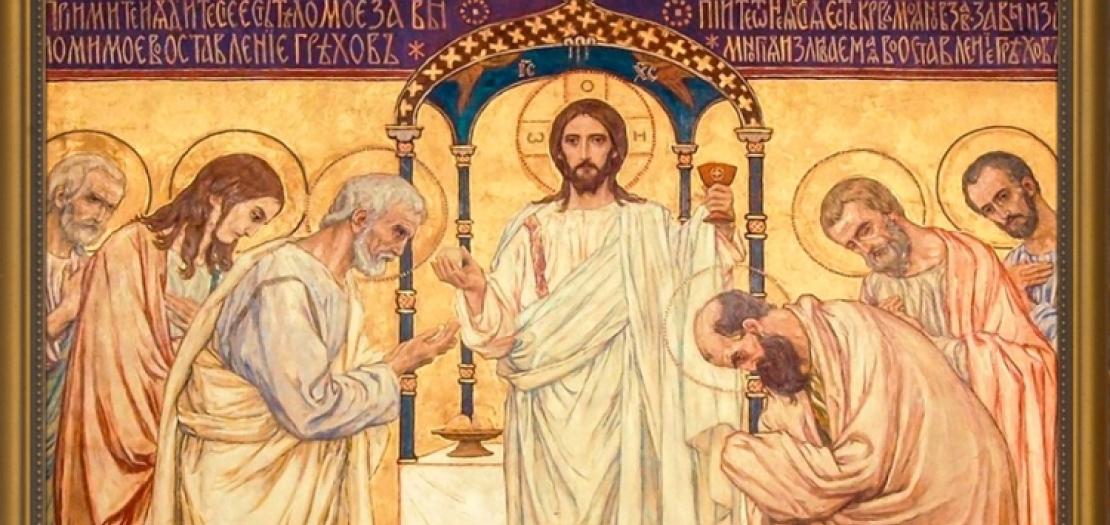
Following is the text of meditation by Cardinal Pierbattista Pizzaballa, Latin Patriarch of Jerusalem: The 21st Sunday of ordinary time, dated August 25, 2024:
At the conclusion of Jesus' discourse in John 6, similar to what occurs in the dialogues following other signs reported by the Evangelist John, two distinct groups emerge among those present: one group embraces the message and comprehends the sign, while the other group rejects it and remains unbelieving.
The sign is meant for everyone, but while some are touched by the grace and gifts of God revealed through Jesus' works, and experience a transformation in their lives, others find it difficult to open their hearts. Each person has their own timing and path. What remains certain is that the Father never ceases to draw us to Himself, as Jesus repeatedly highlighted in this discourse, trusting that eventually, everyone’s heart will find an opening.
What can create an opening in the hardened heart of man?
Today's passage provides us with opportunities for reflection.
Only a hard - strong and challenging - word, like the one described in John 6:60, can make a breach in a man’s hardened heart. Jesus doesn’t present us with a trivial or restricted vision, nor a diluted and disappointing life plan. Instead, He offers a serious and important path, one that is worthy of the salvation given to us, allowing us to fully embrace the heights of God's gift.
The path that leads to these heights cannot be other than a serious, maturing and demanding one that deeply engages the entire human experience. It’s not about superficial change, but about cultivating a humanity capable of true communion, fraternity, and sharing. The challenging Word is the one that shifts focus from the individual "I" to the collective "we."
Only a "hard" word has the power to capture the human heart and set in motion paths of truth and freedom.
When confronted with this difficulty, there are two possible reactions: the first is bewilderment from those who find the Word too challenging to follow (Jn. 6:60). This attitude stems from a lack of faith and trust, where it is thought that this conversion of the heart depends only on us and our efforts. Such bewilderment becomes murmuring, (John 6:61) much like what occurred during the Exodus journey when faced with the great promise of freedom and life.
The second reaction is reflected in Peter's words.
When Jesus becomes aware of the disciples' murmuring (John 6:61), He does not soften His message but intensifies it, making His words even more “hard” (John 6:62) by speaking of His return to the Father and His Passover.
At this juncture, Jesus poses a decisive question: "Do you also want to leave?" (John. 6:67)
Peter responds on behalf of everyone, marking the beginning of a new, expanded humanity capable of true communion and fellowship. His answer is not just his own but represents the collective response of the other disciples, through whom he has come to understand and express the grace of faith.
His response recalls the start of the chapter: in the presence of the crowd, Jesus asked Philip where they could find enough bread to feed so many people. (John. 6:5)
By the end of this discourse filled with hard teachings, Peter, along with the others, has realized that there is indeed a source of nourishment for so many people, and that source is a person: "to whom shall we go?" (John 6:68)
Peter now understands that there is no other place or person who can provide salvation except for the Lord Himself.
Peter knows where to find sustenance for human life because he has both believed and recognized it (John 6:69): these are two essential actions.
Believing is fundamental, meaning having a life-giving relationship of trust and dependence with the Lord.
Equally essential is knowing.
In the Bible, to know God means to experience His saving and liberating actions; it involves encountering a presence that never forsakes us.
Peter knows Jesus not merely through information about Him, but by recognizing Him as the One who gives him life. This realization comes through Jesus' challenging Word, which can unsettle and test us. It demands a choice, never allows us to become complacent, continually sets us back on the path, and sustains us with true nourishment, the Bread of Life.
+Pierbattista



